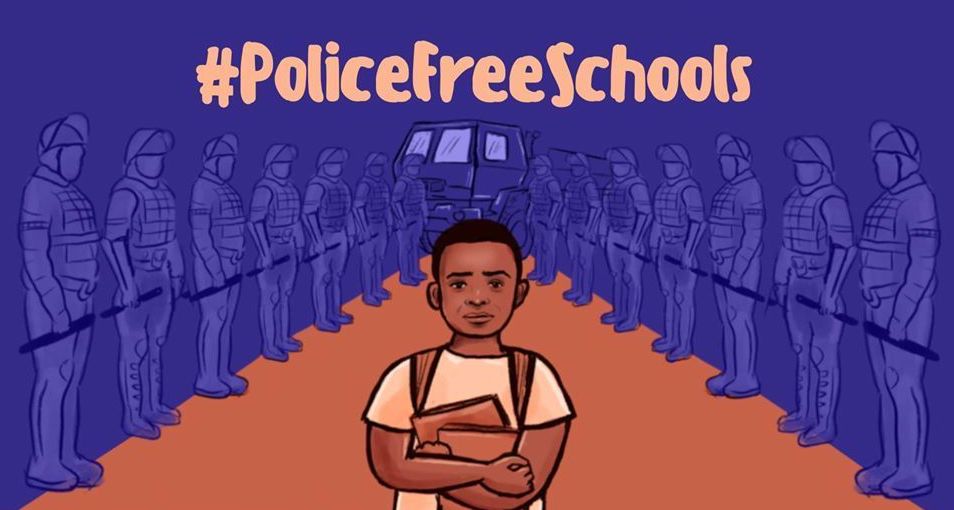by Aneesha Tucker, EmancipateNC Intern
Dignity in Schools is launching a vision called “Counselors Not Cops: Ending the Regular Presence of Law Enforcement” that imagines an alternative to the regular occupation of law enforcement in schools. The data on arrests and referrals show that law enforcement disproportionately targets Black and Latino students, perpetuating the school-to-prison pipeline. Their vision is designed through a set of recommendations that build upon their DSC Model Code on Education and Dignity and focus on the diverse needs and characteristics of individual communities.
The recommendations are as follows:
- End the regular presence of law enforcement in schools;
- Create safe schools through positive safety and discipline measures;
- Restrict the role of law enforcement that are called into schools.
By ending the presence of law enforcement – including School Resource Officers, security officers, and police – in schools, DSC asserts that schools should not be included in an officer’s regular beat. Instead, states, districts, and schools should shift resources away from practices and staff that criminalize students, and invest in positive safety approaches and school staff.
This would be funded through the core education budget where staff trained to ensure safe and positive school climates (i.e. community intervention workers, transformative or restorative justice coordinators, etc.) are employed, all school staff is giving ongoing training and support in positive approaches, youth and parent leadership councils are promoted (including district-level structures such as Student and Teacher Supportive Services Department) and Black and Latino administrators are intentionally recruited and trained in positive approaches.
To solidify the importance of this step, DSC further recommends that all school districts adopt a Memorandum of Understanding (MOU) between schools and local police departments that limits the role of any law enforcement personnel who come in contact with schools by:
- only allowing them to respond to serious criminal law matters,
- setting strict limits to what they can and cannot do when they are called for these responses,
- eliminating their ability interact with students before a parent or guardian arriving,
- prohibiting schools from calling law enforcement for behaviors outlined in the DSC Model Code on Education and Dignity,
- ensuring follow up plans for students who are removed from school,
- and ensuring training for all law enforcement officials who come in contact with schools.
This should all be a transparent process, where students and parents have easy access to a quick and accessible complaints process and these restrictions and interactions are published and documented so that the community knows what is happening and what the police cannot do in their schools. Each recommendation is to work toward the central goal of supporting the success of students rather than allowing criminalization to deny them the opportunity to succeed.
